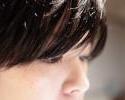By Anonymous, Mon, August 08, 2011
Obsessive-compulsive disorder (OCD) is an increasingly common, somewhat uncomfortable mental condition that comes in a number of shapes and sizes. Although there was once a certain stigma associated to the disorder, a growing presence of admitted OCD sufferers in society has changed the norm and made people far more accepting of the obsessions and compulsions that accompany the condition.
Some of the more prevalent categories of OCD are (via HelpGuide.org):
• Washers are afraid of contamination. They usually have cleaning or hand-washing compulsions.
• Checkers repeatedly check things (oven turned off, door locked, etc.) that they associate with harm or danger.
• Doubters and sinners are afraid that if everything isn’t perfect or done just right something terrible will happen or they will be punished.
• Counters and arrangers are obsessed with order and symmetry. They may have superstitions about certain numbers, colors, or arrangements.
• Hoarders fear that something bad will happen if they throw anything away. They compulsively hoard things that they don’t need or use.
Some of the more common OCD thoughts are:
• Fear of being contaminated by germs or dirt or contaminating others.
• Fear of causing harm to yourself or others.
• Intrusive sexually explicit or violent thoughts and images.
• Excessive focus on religious or moral ideas.
• Fear of losing or not having things you might need.
• Order and symmetry: the idea that everything must line up “just right.”
• Superstitions; excessive attention to something considered lucky or unlucky.
At the same time of the more well-known OCD behaviors are:
• Excessive double-checking of things, such as locks, appliances, and switches.
• Repeatedly checking in on loved ones to make sure they’re safe.
• Counting, tapping, repeating certain words, or doing other senseless things to reduce anxiety.
• Spending a lot of time washing or cleaning.
• Ordering or arranging things “just so.”
• Praying excessively or engaging in rituals triggered by religious fear.
• Accumulating “junk” such as old newspapers or empty food containers.
Anyone who thinks they may be suffering from OCD should contact a mental health professional and get a proper diagnosis.







